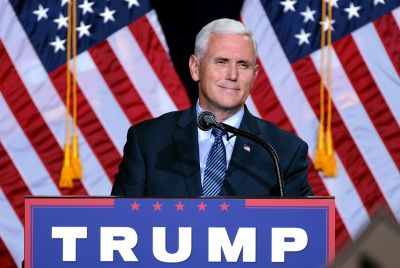Harvard Seeks $750M Amid Federal Funding Threat Over Anti-Semitism Protests

Harvard University announced on Monday that it plans to borrow $750 million (S$1 billion) from Wall Street as a financial backup, just days after President Donald Trump's administration launched a review of the university's federal funding.
The government is reviewing $9 billion in grants and contracts given to Harvard as part of a broader effort to address alleged anti-Semitism on university campuses.
In a letter sent last week, the administration outlined conditions Harvard must meet to continue receiving federal money. These include banning protesters from wearing masks to hide their identities, along with other restrictions.
"As part of ongoing contingency planning for a range of financial circumstances, Harvard is evaluating resources needed to advance its academic and research priorities," the private Ivy League research university in Cambridge said, Reuters reported.
Harvard Follows Princeton in Bond Issuance Amid Federal Grant Freezes
Harvard's borrowing plan follows a similar move by Princeton University, which announced on April 1 that it may issue about $320 million in taxable bonds later this month. Princeton also revealed that the US government had frozen several research grants.
A Harvard spokesperson said the university plans to issue up to $750 million in taxable bonds for general corporate purposes. As of the end of fiscal year 2024, Harvard had $7.1 billion in debt, which is expected to rise to around $8.2 billion after this new bond issuance.
Harvard previously issued $434 million in tax-exempt bonds in March 2025, $735 million in spring 2024, and raised funds through bonds in 2022.
Harvard, which has a $53 billion endowment—the largest among US universities—is facing pressure from the Trump administration over alleged anti-Semitism on campus. Students, faculty, and advocacy groups have urged Harvard to resist these federal demands.
Trump Threatens Funding Cuts Amid Pro-Palestinian Campus Protests
Trump has threatened to cut federal funding to universities accused of allowing anti-Semitic behavior, a claim that has intensified amid widespread pro-Palestinian protests on campuses like Harvard, sparked by Israel's military response in Gaza.
In March, the Department of Education warned 60 universities, including Harvard, of possible enforcement actions if they failed to address anti-Semitism. The government froze grants to Brown University and canceled $400 million in federal funding for Columbia University, which later agreed to changes demanded by the administration.
Federal agents have recently detained some foreign students involved in protests and revoked their visas, with plans to deport several of them.
© Copyright IBTimes 2024. All rights reserved.





















